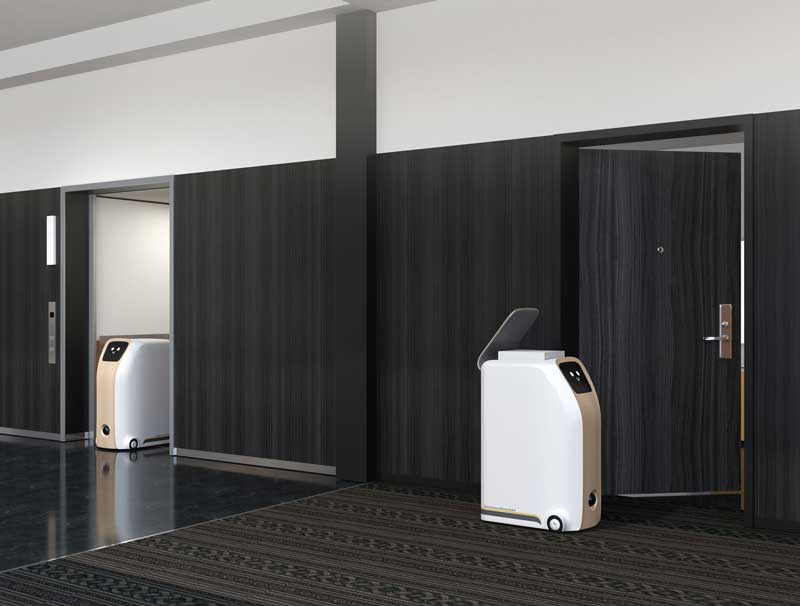- Home
- Hotel Industry
- Digitizing the hospitality sector: the key to long-term competitiveness

The French hotel industry is at a crossroads. With the rise of digital technologies and changing customer expectations, hotels need to adapt quickly to stay competitive. Digital transformation represents both major opportunities and challenges for the sector. This white paper explores in depth the implications of this transition and provides proven strategies for successful implementation.
According to a recent study by Deloitte, only 23% of French hotels have begun their digital transformation by 2022, compared with 39% at European level. This delay can be explained in part by the operational challenges associated with the COVID-19 pandemic, which hit the hotel industry hard. However, with the recovery in tourism, digital adoption is becoming a necessity to meet new customer expectations and remain competitive.
Today’s customers, accustomed to online services, demand a fluid, personalized experience, from booking to check-out. According to a survey conducted by Opinionway in 2023, 67% of French people say that the quality of the digital experience is a determining factor in their choice of hotel. A decisive argument in favor of digitalization forhotel managers!
Digitization for the hotel industry encompasses the integration of digital technologies into all facets of the hospitality sector to optimize processes, enhance the customer experience and increase operational efficiency. It includes automating services, improving customer relationship management, and deploying data-driven solutions for strategic decision-making.
Successful digital transformation requires the modernization and automation of key processes such as customer relationship management (CRM) and resource planning (ERP). These tools enable more efficient management of reservations, inventories and customer interactions, leading to improved user experience and optimized management.
Cultural change is essential to the adoption of new technologies. It’s all about cultivating a mindset of innovation and flexibility among staff. Encouraging continuous learning and adaptation to change is crucial to effectively integrating digital technologies into daily operations. A staff armed to deal with new technologies will find it much easier to accept the digitization of the hospitality industry.
The effective integration of information through interconnected systems enables a precise overview of operations and customer preferences. This helps hotels to personalize services and anticipate customer needs, thereby increasing satisfaction and loyalty.
The Internet of Things (IoT) is revolutionizing the guest experience in hotels. Connected objects, such as smart door locks, thermostats and automated lighting, enable centralized control and efficient resource management. According to Gartner, IoT adoption in the hotel industry is set to grow by 21.9% by 2025, offering substantial savings in operating and energy costs.
AI is also transforming the customer experience in the hotel industry. Chatbots and virtual assistants enable 24/7 customer service, while predictive analytics optimize pricing and revenue management. According to an IDC study, AI adoption in the hotel industry is set to increase by 37.5% by 2026, improving operational efficiency and customer satisfaction.
VR and AR offer new opportunities to enhance the customer experience in the hotel industry. Immersive virtual tours allow guests to discover rooms and facilities before they arrive. AR can also be used to provide additional information on local points of interest or to enhance the dining experience. According to a study by PwC, 24.7% of French hotels plan to invest in VR/AR by 2025.
The main objective of digital transformation in a hotel is to improve operational efficiency and deliver an exceptional customer experience, in order to remain competitive over the long term. This translates into the acquisition of new technologies enabling optimized management of resources, a better understanding of customer expectations, and a greatly enhanced ability to respond dynamically to rapid changes in the market.
Hotel group Accor is launching a revolutionary mobile app in 2021, allowing guests to control various aspects of their stay, such as check-in/check-out, ordering services, and even opening their room door via their smartphone. This initiative has significantly improved the customer experience, with an 18% increase in satisfaction rates according to Accor’s internal data.
The Barrière group has relied on AI to optimize its revenue management. Using machine learning algorithms, the company can dynamically adjust its rates according to demand, weather and other factors. This strategy has increased RevPAR (revenue per available room) by 12.5% in 2022, according to figures published by the group.
The Hôtels & Préférence chain has adopted virtual reality to enable customers to take a virtual tour of its establishments prior to booking. This initiative has contributed to a 22% increase in online bookings in 2023, according to company data.
Before embarking on a digital transformation, it is essential to define a clear roadmap with measurable objectives. This roadmap must take into account each facility’s specific needs, resources and budgetary constraints.
Staff training is crucial to the successful adoption of new technologies. Employees need to be trained in the use of new tools and systems, as well as best practices in digital customer experience.
With digital adoption, data security and customer privacy are becoming top priorities. Hotels must implement robust security measures, such as data encryption, access management and compliance with current regulations (GDPR, etc.).
In an ever-changing environment, hotels need to encourage innovation and agility within their organization. This can take the form of innovation programs, partnerships with start-ups or agile processes for rapid adaptation to new trends.
Digital transformation is an iterative process. It is essential to regularly measure the performance and impact of digital initiatives, and adjust strategies accordingly. Data analysis and customer feedback are crucial to continually optimizing the digital experience.
Digital transformation in the hotel industry is no longer an option, but a necessity to remain competitive in a constantly changing environment. Emerging technologies such as IoT, AI and VR/AR offer numerous opportunities to enhance the customer experience, optimize operations and generate new revenue streams.
However, this transition also brings challenges, particularly in terms of data security, staff training and financial investment. Hotels that successfully address these challenges and adopt a strategic, agile approach will be best positioned to reap the benefits of digital transformation.
In the future, we can expect to see new disruptive technologies emerge, such as blockchain for reservations management or 5G for even richer immersive experiences. Hotels that embrace these innovations and stay at the forefront of change will be tomorrow’s big winners.
With 25 years’ experience in consulting and implementing advanced technological solutions for the digitization of the hospitality sector, Inibar Services is the partner of choice to support your establishment in this crucial step.
Inibar Services understands the unique challenges your hotel may face, and offers customized solutions that incorporate the latest technological innovations to enhance your competitiveness.
With Inibar Services, ensure a smooth, efficient and serene transition to digitalization, while optimizing your guests’ experience and maximizing your operational performance.
The French hotel industry is at a crossroads. With the rise of digital technologies and changing customer expectations, hotels need to adapt quickly…

